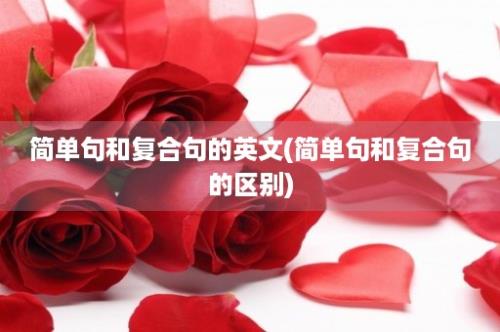简单句和复合句(简单句和复合句的区别)
在生活中,很多人可能想了解和弄清楚英语简单句与复合句的互换是基本技能的相关问题?那么关于简单句和复合句的英文的答案我来给大家详细解答下。

一、含宾语从句的复合句转换为简单句
即将宾语从句转换成相应的短语。如:
We expected that you would come. 我们希望你来。
→We expected you to come. 我们希望你来。
Now tell me what I should do. 现在告诉我该怎么办。
→Now tell me what to do. 现在告诉我该怎么办。
I remember I once met her at a party. 我记得在一次晚会上见过他。
→I remember once meeting her at a party. 我记得在一次晚会上见过他。
I ask him what I shall do. 我问他该怎么办。
→I ask him what to do. 我问他该怎么办。
I can’t decide whom I should invite. 我不能决定该邀请谁。
→I can’t decide whom to invite. 我不能决定该邀请谁。
二、含状语从句的复合句转换成简单句
即将状语从句转换成状语短语。如:
He can’t come because he is ill. 他因病不能来。
→He can’t come because of his illness. 他因病不能来。
Turn off the light before you leave. 离开前请关灯。
→Turn off the light before leaving. 离开前请关灯。
He went home after he finished his work. 他做完工作后就回家了。
→He went home after finishing his work. 他做完工作后就回家了。
He was so angry that he couldn’t speak. 他气得话都说不出来。
→He was too angry too speak. 他气得话都说不出来。
He studied hard in order that he could pass the exam. 他努力学习以便能考及格。
→He studied hard in order to pass the exam. 他努力学习以便能考及格
温馨提示:通过以上关于英语简单句与复合句的互换是基本技能内容介绍后,相信大家有新的了解,更希望可以对你有所帮助。